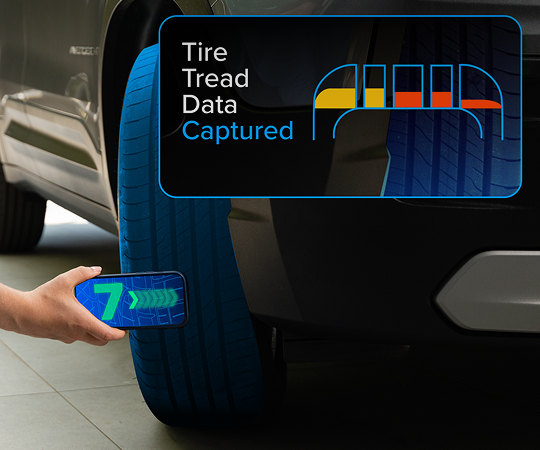
Using Data to Manage the Lifecycle of Truck Fleets
Data is an ongoing hot topic in the world of truck fleets. There’s no doubt that any major player in the industry is considering how to best use data to enhance operations, efficiencies, and profit. In a recent conversation with Brian Antonellis, the Senior Vice President of Fleet Operations at Fleet Advantage, at the TMC 2024 Conference, we had the opportunity to discuss the importance of data in the application of lifecycle management of truck fleets.

How Does Data Capture and Analytics Contribute to the Optimization of a Truck’s Lifecycle?
When considering how data capture and analytics, two opposing sides of data, contribute to the overall optimization of a truck’s lifecycle within a fleet, Brian shares, “So you think about data, and really that drives all the decisions we make. So, when you think about a truck, there are different components that make up the cost, right? You have a small component, which is the finance piece, but about 62% to 63% of the total expense to run a truck is fuel and 20% of the expenses is repair and maintenance costs, and the rest is your payment.”
There’s more to consider, though. Often, people focus on the cost of acquiring the truck, but that’s not important. “It’s a very small percentage of the cost. So, when we think about data, it’s understanding your MPG (Miles Per Gallon) and R&M (Reliability & Maintainability) data.”
It’s a core component of the work Fleet Advantage does. The company, which operates a propriety system, notes the value of data applications. He states it helps with understanding what the cost is today, but also provides insights into managing lifecycle. It helps to answer questions like when to take a truck out of service.

Understanding Long Term Costs
To better explain this concept, he offers an example. First, he notes that fuel is often considered the number one cost. “If you go through the lifecycle of a truck year one, two, three, probably four if you’re running about 100,000 miles a year, you’re going to get optimal fuel economy. But what’s happening in the industry during those years where you’re running it, it’s getting about 2% better every year,” he explains.
That means that, when you consider the current efficiencies, by year four, you are already 8% behind what a new truck would produce. At some point, you’ll see fuel degradation, he explains, and that leads to a loss of 1% to 2% a year. “So, within a four-year lifecycle, you can have a 10% swing in fuel, 60% to 63% of your total cost.” The bottom line, then, is that companies must understand their fuel curve during those first years of ownership.
To know where you stand at any point, you must be able to have and use data, he shares. “Being able to take in multiple inputs from your ECM off the tractor, as well as your maintenance software system, whether it’s yours or use a third party, it really doesn’t matter. You just got to capture the data and then manage your lifecycle so that you’re removing the truck before you see dramatic fuel degradation and before that iron M curve dramatically turns up on you.”

Using Data Effectively Is Also Critical
While obtaining that data is critical, it is also essential to ensure that data is being used properly. With so much data available, as Brian explains, it’s easy for that information – as valuable as it is – to be difficult to utilize and manage effectively. It is possible for companies to do the work of better managing and applying data in-house, but it’s also highly skilled work that often requires careful attention.
At Fleet Advantage, we have a proprietary system called Atlas…It takes in your maintenance data, your fuel data, and then you can go ahead and project because like I said, not every truck runs the same,” he notes.
He also notes the importance of regulation, stating that, even though it isn’t something many people want right now, it will get better and, over time, will offer better benefits to the planet and industry.



